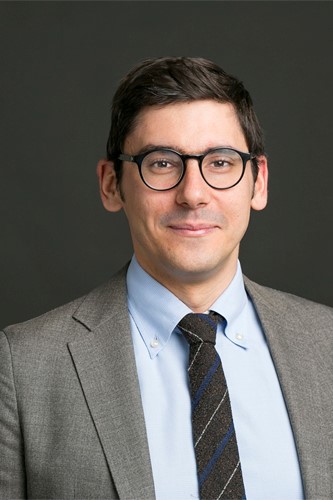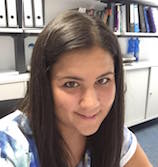Studying at the University of Verona
Here you can find information on the organisational aspects of the Programme, lecture timetables, learning activities and useful contact details for your time at the University, from enrolment to graduation.
Academic calendar
The academic calendar shows the deadlines and scheduled events that are relevant to students, teaching and technical-administrative staff of the University. Public holidays and University closures are also indicated. The academic year normally begins on 1 October each year and ends on 30 September of the following year.
Course calendar
The Academic Calendar sets out the degree programme lecture and exam timetables, as well as the relevant university closure dates..
| Period | From | To |
|---|---|---|
| primo semestre triennali | Sep 19, 2016 | Jan 13, 2017 |
| secondo semestre triennali | Feb 20, 2017 | Jun 1, 2017 |
| Session | From | To |
|---|---|---|
| Prove intermedie primo semestre | Nov 7, 2016 | Nov 11, 2016 |
| Appelli esami sessione invernale | Jan 16, 2017 | Feb 17, 2017 |
| Prove intermedie secondo semestre | Apr 10, 2017 | Apr 13, 2017 |
| Appelli esami sessione estiva | Jun 5, 2017 | Jul 7, 2017 |
| Appelli esami sessione autunnale | Aug 28, 2017 | Sep 15, 2017 |
| Session | From | To |
|---|---|---|
| Sessione autunnale | Nov 30, 2016 | Dec 1, 2016 |
| Sessione invernale | Apr 5, 2017 | Apr 7, 2017 |
| Sessione estiva | Sep 11, 2017 | Sep 13, 2017 |
| Period | From | To |
|---|---|---|
| Vacanze natalizie | Dec 23, 2016 | Jan 5, 2017 |
| Vacanze pasquali | Apr 14, 2017 | Apr 18, 2017 |
| Vacanze estive | Aug 7, 2017 | Aug 25, 2017 |
Exam calendar
Exam dates and rounds are managed by the relevant Economics Teaching and Student Services Unit.
To view all the exam sessions available, please use the Exam dashboard on ESSE3.
If you forgot your login details or have problems logging in, please contact the relevant IT HelpDesk, or check the login details recovery web page.
Academic staff
Borello Giuliana
 giuliana.borello@univr.it
giuliana.borello@univr.it
 045 802 8493
045 802 8493
 simona.gamba@univr.it
simona.gamba@univr.it
Study Plan
The Study Plan includes all modules, teaching and learning activities that each student will need to undertake during their time at the University.
Please select your Study Plan based on your enrollment year.
1° Year
| Modules | Credits | TAF | SSD |
|---|
2° Year activated in the A.Y. 2017/2018
| Modules | Credits | TAF | SSD |
|---|
3° Year activated in the A.Y. 2018/2019
| Modules | Credits | TAF | SSD |
|---|
| Modules | Credits | TAF | SSD |
|---|
| Modules | Credits | TAF | SSD |
|---|
| Modules | Credits | TAF | SSD |
|---|
| Modules | Credits | TAF | SSD |
|---|
Legend | Type of training activity (TTA)
TAF (Type of Educational Activity) All courses and activities are classified into different types of educational activities, indicated by a letter.
Organization Studies (2018/2019)
Teaching code
4S00082
Teacher
Coordinator
Credits
6
Language
Italian
Scientific Disciplinary Sector (SSD)
SECS-P/10 - ORGANIZATION AND HUMAN RESOURCE MANAGEMENT
Period
secondo semestre lauree triennali dal Feb 18, 2019 al May 31, 2019.
Learning outcomes
The course aims to provide students with knowledge about the basic elements and fundamental institutions to understand how the organization works. To this end, the conceptual and operational tools are provided to read and design the organizational structures.
The course also aims to develop the skills of reading and interpreting the different phenomena of the organizational culture of the company.
At the end of the lessons, the student must be able to understand the basic concepts of business organization, to know the main categories of organizations as well as to understand the dynamics that govern the organizations themselves. In addition, the student will be able to recognize opportunities arising from new technologies that facilitate the development of new business models. With reference to the applied comprehension skills, the student must be able to translate the theoretical concepts presented in the classroom in situations and concrete cases of business organizations.
Program
Organization Theory - (Intro)
- Strategy and Organization Design
- Organization Structures
- Organizations and Environments:
- Organization Design for international relationships
- Technologies for Manufacturing and Services
- Information and Communication Technologies
- Innovation and Change
The teaching method includes lectures integrated by the analysis of business cases found in the literature carried out by the students. There are also testimonies made by experts/managers working in the company.
Teaching therefore involves frequent discussions of case studies focused on the definition and resolution of the different organizational configurations that can be adopted in different cultural and environmental contexts.
The preparation and presentation of cases in the classroom by the students is optional, but helps the students to develop both their ability to work in a group (during the preparation of cases) and their communication skills (in the presentation phase of the cases in front of all colleagues in the classroom).
The e-learnig platform also represents the repository for material under discussion
Course Material
Daft R.L.: "Organizzazione Aziendale" sesta Edizione - Apogeo 2017. Chapters 1,2,3,4,5,6,7,8 and 11
Suggested:
Morgan G. "IMAGES, Le metafore dell'organizzazione". Franco Angeli Milano 2002 (Chapters 1,2,3,4)
| Author | Title | Publishing house | Year | ISBN | Notes |
|---|---|---|---|---|---|
| Richard L. Daft | Organizzazione Aziendale (Edizione 7) | MAGGIOLI | 2021 | 978-88-916-4714-6 |
Examination Methods
The exam consists of a written test with 3 open questions.
The questions are structured to verify the level of knowledge acquired by the students. At the same time the questions want to verify the ability of students to interpret organizational phenomena.
The written test is aimed at ascertaining:
- knowledge of the topics in the program, with particular reference to their applicative and methodological aspects;
- the ability to apply logical schemes to the various organizational problems presented, with particular reference to issues related to organizational planning.
- the depth and breadth of the acquired knowledge;
- the property of language;
- the ability to connect knowledge in a systemic way.
The final evaluation, which takes into account any activities related to the carrying out of case studies carried out during the course, is expressed in 30ths.
The case study is an optional activity that the student can do to obtain a maximum of 2 points that are added to the written test score (only if the latter is sufficient). In the classroom, during the first lesson, the teacher explains in detail how the case study should be carried out. In the second part of the program the teacher plans the presentation in the classroom of the case studies prepared and presented by the students.
The intermediate test is not foreseen.
During the last lesson a simulation will be carried out concerning the exam mode.
Type D and Type F activities
| years | Modules | TAF | Teacher |
|---|---|---|---|
| 1° | Advanced Excel Laboratory (Verona) | D |
Marco Minozzo
(Coordinator)
|
| 1° | Excel Laboratory (Verona) | D |
Marco Minozzo
(Coordinator)
|
Career prospects
Module/Programme news
News for students
There you will find information, resources and services useful during your time at the University (Student’s exam record, your study plan on ESSE3, Distance Learning courses, university email account, office forms, administrative procedures, etc.). You can log into MyUnivr with your GIA login details: only in this way will you be able to receive notification of all the notices from your teachers and your secretariat via email and soon also via the Univr app.
Graduation
List of theses and work experience proposals
| theses proposals | Research area |
|---|---|
| Proposte di tesi triennali | Various topics |
































